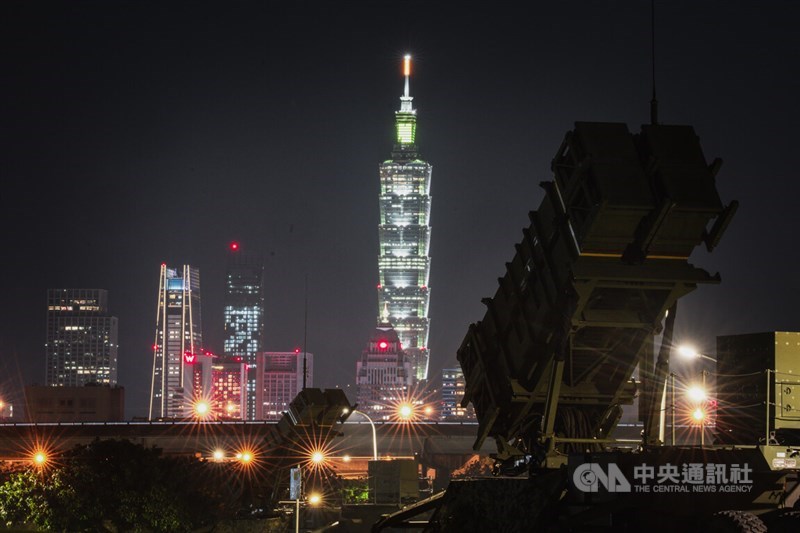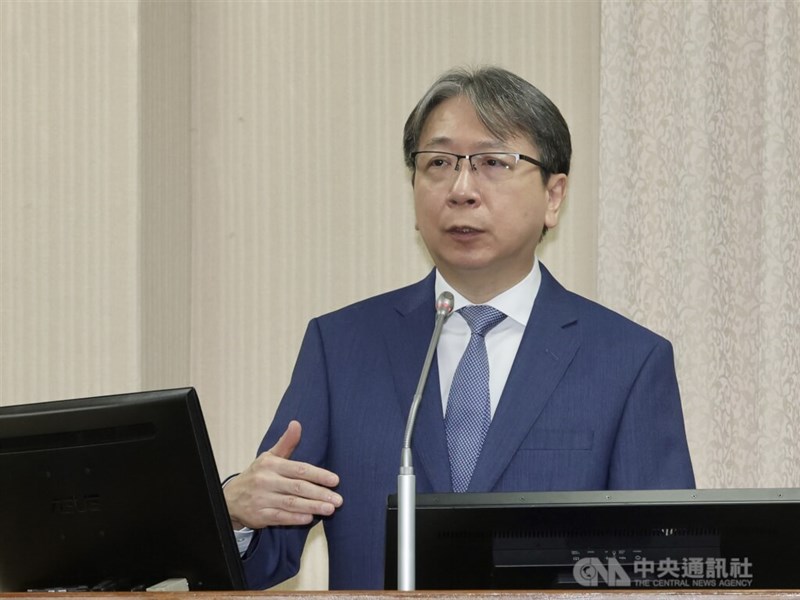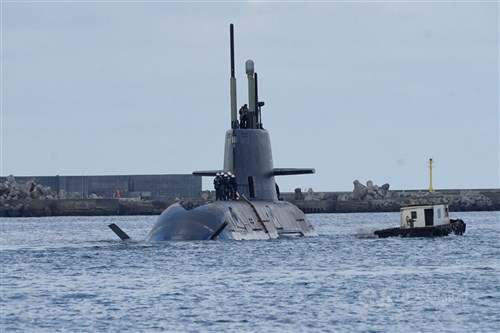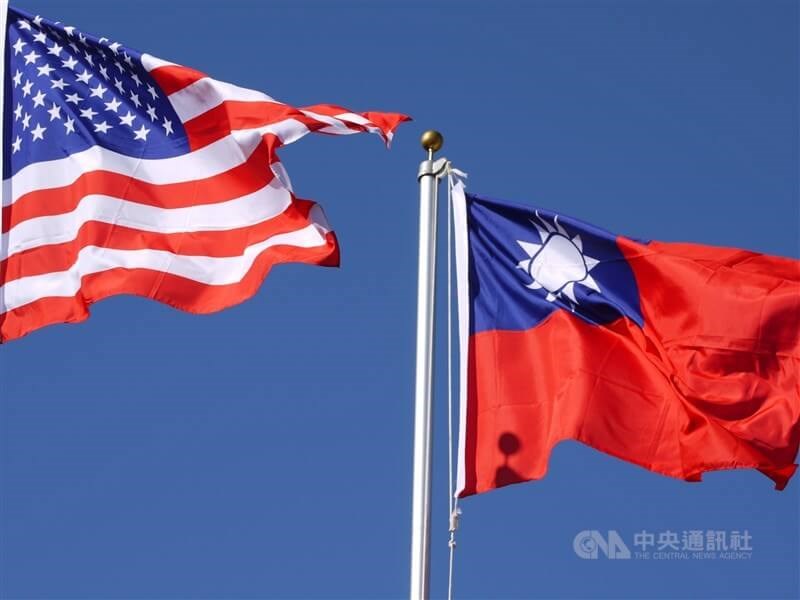DEFENSE/U.S. arms sales likely after Taiwan passes special defense budget: Expert

Washington, Oct. 14 (CNA) U.S. President Donald Trump will likely approve the first arms sale to Taiwan of his second term after Taipei passes its special national defense budget, a former U.S. defense official said on Tuesday.

Randall Schriver, a former Assistant Secretary of Defense for Indo-Pacific Security Affairs, told CNA that "a lot will depend" on whether Taiwan passes the special budget, which is expected to be introduced later this month.
"If it's as large as Taiwanese officials are suggesting, then I think there will be a lot of support in the United States for approving those sales," Schriver said, adding that it would make "no sense" to ask Taiwan to raise its defense spending and then not approve weapons sales.
Taiwan's government has proposed earmarking NT$113.2 billion (US$3.7 billion) for national defense as part of a NT$550 billion special budget, in order to extend the country's wartime reserves from 30 days to 120 days.
The government has also proposed hiking defense spending to NT$949.5 billion, or 3.32 percent of GDP, in 2026, though both proposals are likely to face scrutiny in the opposition-controlled Legislature.
Schriver, who now serves as chairman of the Institute for Indo-Pacific Security, said that while Taiwan's defense spending commitments should be "applauded," the focus should be on how the money is spent, rather than how much.
In addition to expanding military-to-military training programs, Schriver said, the U.S. should also widen its focus beyond an invasion scenario and help Taiwan counter Chinese gray-zone activities.
In practice, this could involve selling Taiwan capabilities that are less useful in an invasion scenario, such as E-2D Hawkeye airborne early warning aircraft or MH-60 helicopters, he said.
Joint U.S.-Taiwan weapons production
On the possibility of joint U.S-Taiwan weapons production, which U.S. Senator Roger Wicker recently said he expects to occur, Schriver said it would help address the shortages the U.S. faces both for its own military and those of its partners.
More production capacity would be helpful for both sides, and more in Taiwan, specifically, would mean that those weapons would not have to be brought in by ship or air in the event of a crisis, he said.
Trump
CNA also asked Schriver about concerns that Trump might use Taiwan as a bargaining chip, given his frequently transactional approach to diplomacy.
In recent months, media outlets have reported that Trump had blocked a military aid package to Taiwan and a proposed stopover by President Lai Ching-te (賴清德) as he negotiated a trade deal with China.
Despite these issues, Schriver said he had "not seen any indication that Taiwan is going to be dumped or bargained away."
While transactional, Trump "does not take bad deals," and would thus be unlikely to agree to anything that makes Xi Jinping (習近平) look stronger or gives China the upper hand, Schriver said.
![China may hold large-scale drill by year-end: Taiwan intelligence head]() China may hold large-scale drill by year-end: Taiwan intelligence headTaiwan's top intelligence chief on Wednesday said it was not unlikely that China's military holds another large-scale military drill before the end of this year and that Taiwan has to stay prepared.12/03/2025 12:46 PM
China may hold large-scale drill by year-end: Taiwan intelligence headTaiwan's top intelligence chief on Wednesday said it was not unlikely that China's military holds another large-scale military drill before the end of this year and that Taiwan has to stay prepared.12/03/2025 12:46 PM![Defense minister denies anchor-free submarine tests endangered crew]() Defense minister denies anchor-free submarine tests endangered crewDefense Minister Wellington Koo (顧立雄) on Monday denied that testing Taiwan's submarine prototype without its anchor endangered the crew, or that the move was driven by pressure to meet a delayed delivery deadline.12/01/2025 06:52 PM
Defense minister denies anchor-free submarine tests endangered crewDefense Minister Wellington Koo (顧立雄) on Monday denied that testing Taiwan's submarine prototype without its anchor endangered the crew, or that the move was driven by pressure to meet a delayed delivery deadline.12/01/2025 06:52 PM![U.S. scholar urges Taiwan to prioritize deployable asymmetric weapons]() U.S. scholar urges Taiwan to prioritize deployable asymmetric weaponsTaiwan urgently needs to invest more in asymmetric capabilities, a U.S. scholar said on Friday, noting that credible deterrence requires prioritizing forces that can be deployed quickly.11/29/2025 03:48 PM
U.S. scholar urges Taiwan to prioritize deployable asymmetric weaponsTaiwan urgently needs to invest more in asymmetric capabilities, a U.S. scholar said on Friday, noting that credible deterrence requires prioritizing forces that can be deployed quickly.11/29/2025 03:48 PM
- Society
Taipei rally voices migrant workers' anger over work-year limit
12/07/2025 09:34 PM - Society
U.S. vaccine rollback 'regressive,' requires Taiwan vigilance: Expert
12/07/2025 09:15 PM - Society
Firefighters extinguish blaze at Sanxia chemical factory
12/07/2025 09:13 PM - Society
Man arrested for ax attack against police officer detained
12/07/2025 09:02 PM - Business
For TSMC employees in Phoenix, Taiwan Mama delivering taste of home
12/07/2025 06:51 PM


